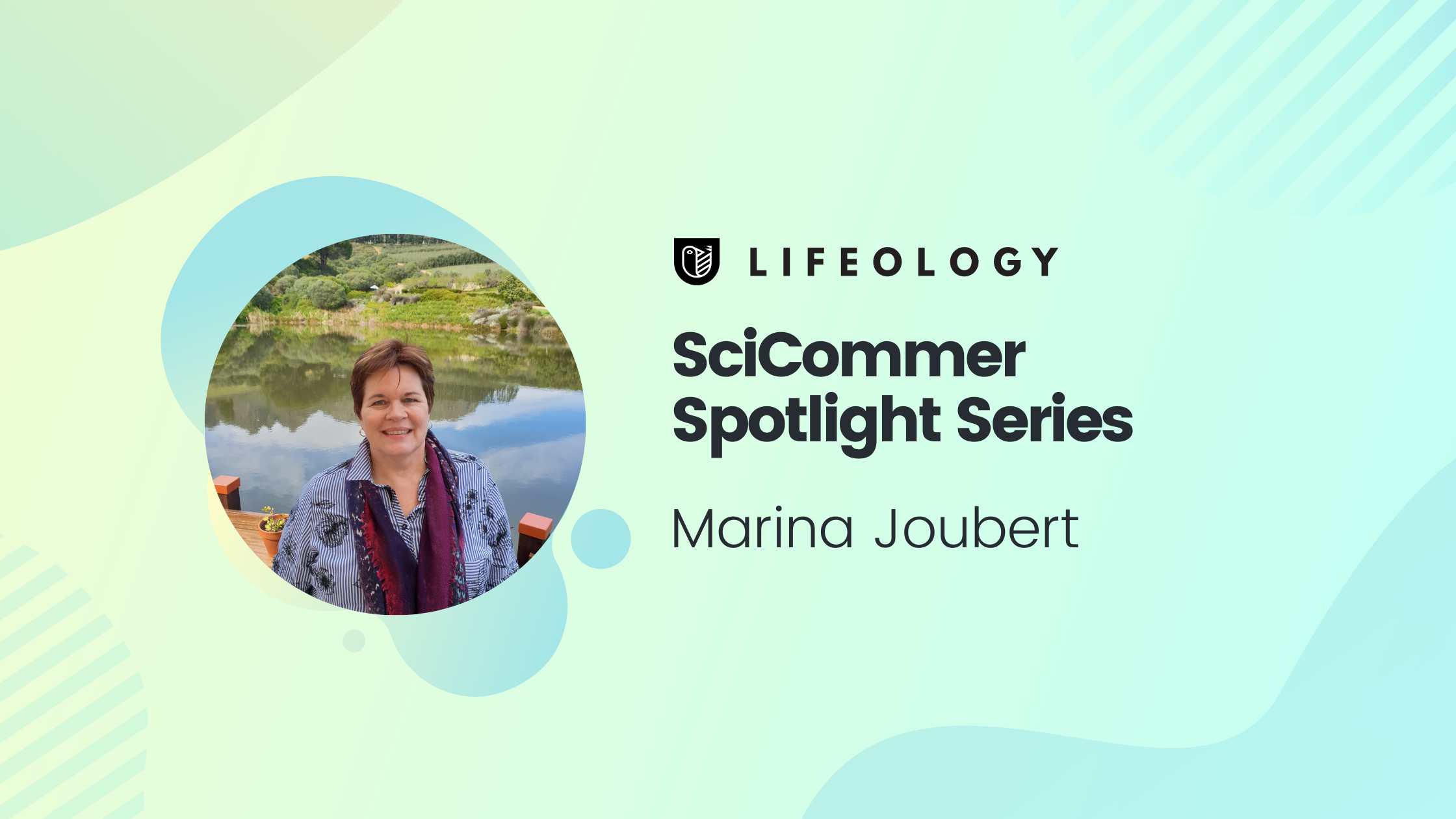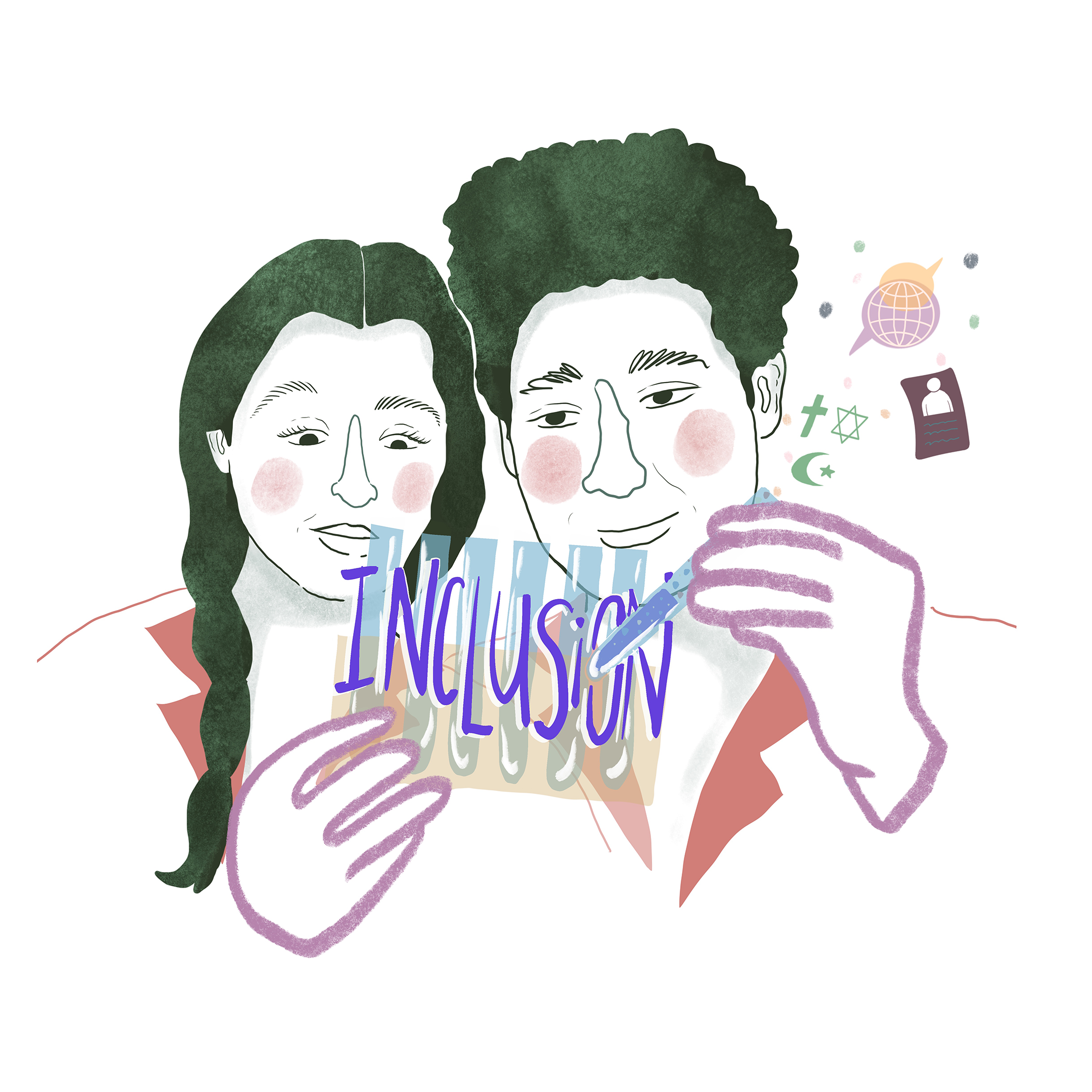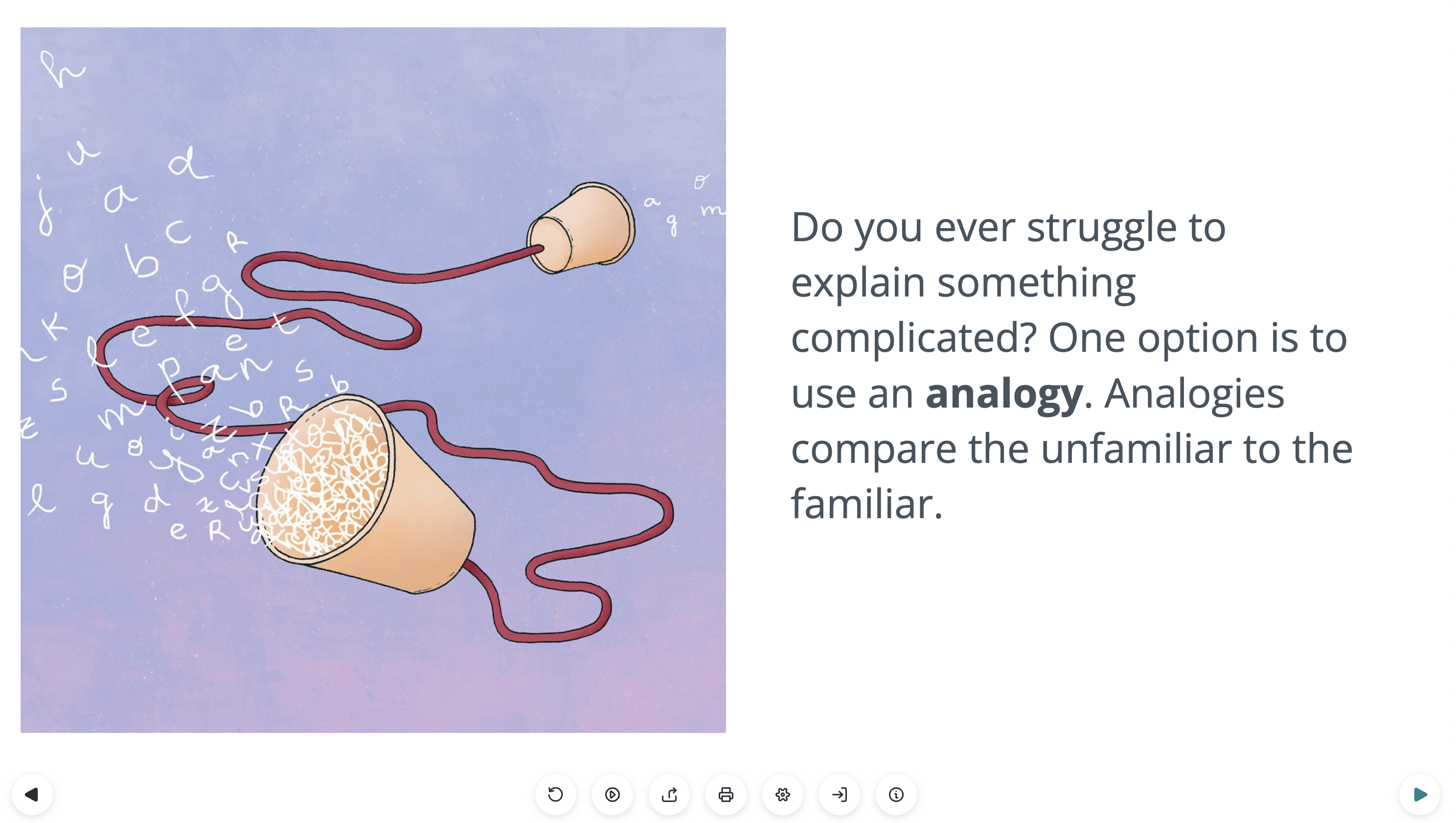We hear a variety of answers to the question: “Why SciComm?” No two SciComm careers look the same! If you’re interested in SciComm, there’s room for you here! If you want to pivot within the SciComm space, there’s room for that, too! Find what interests you with the help of hearing from a variety of SciCommers. Many have left the lab bench for a chance to expand their scientific knowledge beyond their single area of expertise. Others still work as scientists but engage with and serve the public through science communication. Some people even knew early on that they wanted to pursue science communication. We bring you all these stories and the stories in between in our SciCommer Spotlight Series. In this series of blog posts, learn about science communicators’ career paths, their favorite SciComm projects, and why they participate in SciComm. There’s also some advice for aspiring SciCommers!
Meet Marina Joubert!

Those interested in science communication in the developing world are also most welcome to join ‘Science Communication Africa’. Marina Joubert started this Facebook group a few years ago, and it has nearly 4, 000 members by now.
Tell us a little bit about yourself
My career started out as a food scientist, working in a cheese factory for two years! I didn’t hate it, but I also knew that I did not want to build a career in a lab. That is why I jumped at the opportunity to go back to university to complete a one-year graduate course in journalism. At the time (long ago) my family and friends could not fathom why I would want to combine science and journalism. But, over time, that combination opened many doors for me and helped to carve out a career in science communication in South Africa. Looking back, I’ve been in scicomm more than 30 years now.
Did you always want to be a SciCommer?
The field of public science communication, as we know it today, did not exist in South Africa as a recognized field of practice and research when I first attended university (1980s). In 1994, when South Africa became a democracy, the new government at the time recognized the importance of public science literacy and started investing in this. My first ‘big’ scicomm adventure was to be a part of ‘YEAST-98’ (Year of Science and Technology 1998) in South Africa. We travelled across the country with a range of science engagement activities, from big cities to small rural villages. I was hooked and never wanted to do anything else after that. (I recently wrote this chapter on how science communication evolved in South Africa, as part of a global perspective on this topic published by ANU Press.)
There’s a lot of different careers within SciComm. How did you choose which direction you wanted to go?
For the first 25 years of my career, I was a science communication practitioner – working in the ‘trenches’ of scicomm and enjoying the adrenaline that goes with that. Over time, I saw how science communication developed as a research field in other countries, with university programs multiplying around the globe. This made me realize that we had a long way to go to build an evidence-base for science communication in this part of the world. In 2015, I secured an opportunity at Stellenbosch University to play a role in science communication research and teaching. I am thoroughly enjoying this ‘second life’ in my career. Science communication is diverse and dynamic – there is no reason to be stuck in one lane!
What’s been your favorite part about working in SciComm?
I enjoy the diversity of topics and people that I engage with when I do research, but also when I offer training courses. It is also super exciting (and challenging!) to be part of a new, multi-disciplinary research field that is very dynamic and growing fast.
What’s something about SciComm that you wish you knew before pursuing this career?
I wish I knew more about science communication research and the many disciplines that feed into this field – ranging from psychology and behavioral science to statistics and data science. If I could turn back the clock, I would study these topics in depth to enhance my research skills.
What do you think is your most important job as a SciCommer?
As a researcher and academic, I hope to contribute towards establishing science communication as an academic discipline in Africa. In terms of science communication training, I try to equip young scientists with the confidence and skills they need to engage more effectively with diverse audiences. Both aspects of my current work are immensely satisfying.
Tell us about your favorite SciComm project
Working at the South African National Research Foundation (a research funding agency) allowed me to work closely with many of South Africa’s top scientists. Something that stood out for me was how the leading scientists that enjoy global recognition also made time for communicating and engaging with public audiences. Now that I’m doing research, this remains my favorite topic. I love doing research on how scientists themselves feel about science communication, how they respond to demands, and what incentives and barriers they experience when engaging with public audiences.
What advice do you have for aspiring SciCommers?
Find a network in your area and meet up with other science communicators – both practitioners and researchers. Also, join the PCST Network (https://pcst.co/) and try to attend their webinars and conferences. These days, there are also many other webinars and online training courses (many of them free) that you can participate in. If you’re in science communication practice, make an effort to engage with research via the key journals in the field. Start with JCOM (https://jcom.sissa.it/) which is open access, but also look at ‘Public Understanding of Science’ and ‘Science Communication’. Of course, mine social media for inspiration, ideas, content and leaders in our field. For example, on Twitter, I review #scicomm #sciengage #sciart every week.
What do you like to do when you are not SciComm-ing?
I’m an ocean addict (perhaps a clue in my name). So, whenever I can, I make time to walk on the beach or marvel at rock pools. Living in Stellenbosch also means it is easy to do some hikes (easy ones) in the surrounding mountains. I also love a good crime novel and a clever crime series. Of course, it is always a highlight to spend time with my husband Stefan who supported me immensely throughout my career, and my two sons Chris and Peter who participated in my scicomm adventures since they were toddlers, but are both big bearded men by now.




